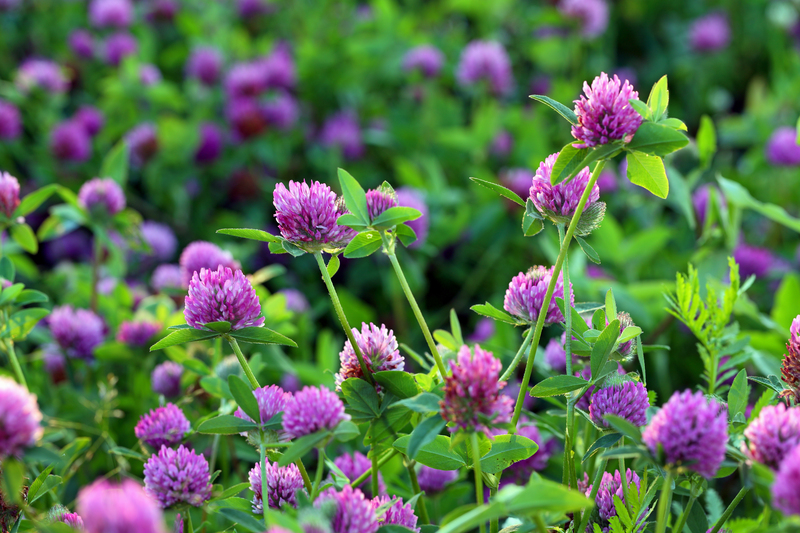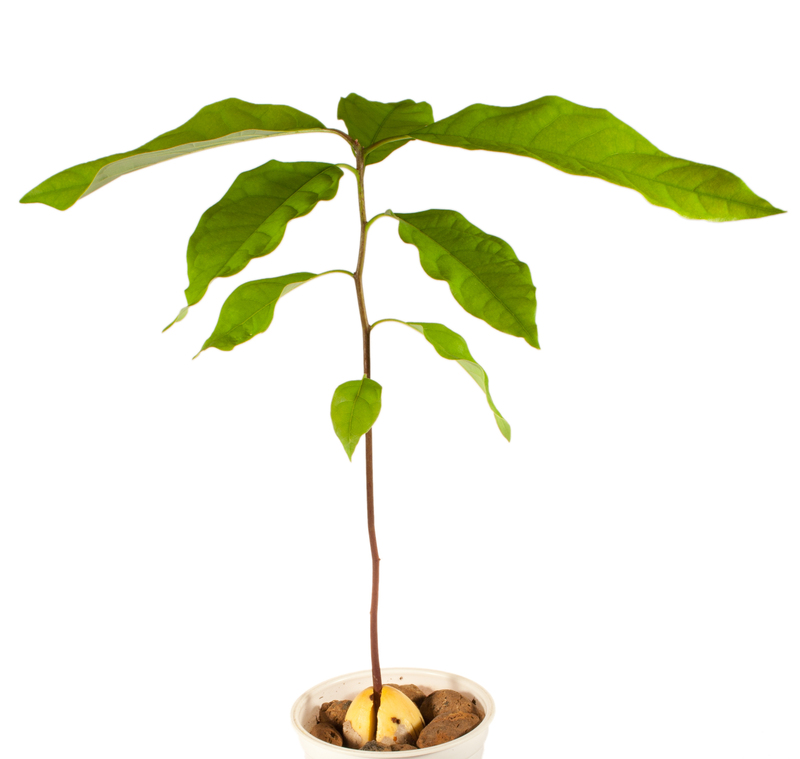Navigate your gardening path with 9 crucial beginner tips
Posted on 04/09/2025
Navigate Your Gardening Path with 9 Crucial Beginner Tips
Embarking on your gardening journey can be both exciting and daunting. Whether you aspire to bask in the beauty of flourishing flowers or harvest homegrown vegetables, setting up a successful garden requires the right approach from day one. If you've been searching for trusted beginner gardening tips, you've come to the right place. Below, we guide you to navigate your gardening path with nine essential steps every novice gardener should know.
Why Start Gardening? The Alluring Benefits for Beginners
Before you get your hands dirty, it's essential to understand the invaluable rewards gardening for beginners can bring:
- Physical activity: Digging, planting, and weeding are all forms of exercise that improve strength and mobility.
- Mental well-being: Spending time outdoors reduces stress, fosters mindfulness, and boosts mood.
- Nutrition: Homegrown fruits and vegetables are fresher, healthier, and taste better than store-bought alternatives.
- Environmental impact: A well-tended garden supports local biodiversity and healthier ecosystems.
With these benefits in mind, let's navigate your garden journey with the following nine crucial gardening tips that cater to beginners and pave the way to a thriving green space.

Tip 1: Select the Right Garden Location
A flourishing garden starts with choosing the optimal spot. When aiming to navigate your gardening path, consider:
- Sunlight: Most plants need 6-8 hours of sunlight. Observe your yard throughout the day and mark the sunniest spots.
- Drainage: Avoid low-lying areas where water accumulates after rain, as it can drown roots.
- Accessibility: Position your garden where it's easy to access for regular care, maintenance, and harvesting. Closer proximity to the kitchen is always a plus for growing your own vegetables and herbs!
Pro Tip for Gardening Beginners:
Start small! A modest plot is easier to manage and leads to fewer mistakes.
Tip 2: Understand Your Climate and Soil
Climate and soil health are the cornerstones of gardening success. To truly navigate your gardening path as a beginner, take time to:
- Identify your plant hardiness zone: Use resources like the USDA Plant Hardiness Zone Map to know which plants thrive in your region.
- Test your soil: Simple DIY kits or local extension offices offer reliable testing. Learn your soil's pH (acidic or alkaline), texture, and nutrient content.
- Improve your soil: Mix in compost, organic matter, or specific amendments based on test results for optimal growth conditions.
Choosing the Right Soil Type
Loamy, well-draining soils support a wide variety of plants. If you're dealing with heavy clay or sandy soils, don't worry--amending with organic matter makes a world of difference!
Tip 3: Research and Choose Suitable Plants
Success begins with planting what thrives. To navigate your gardening experience with confidence, pick plants suited for your climate, soil, and space. For absolute beginners, hardy, low-maintenance varieties are best. Consider the following:
- Annuals vs. perennials: Annuals bloom for one season, while perennials return year after year.
- Edibles or ornamentals: Decide if you want vegetables, herbs, fruits, flowers, or a mix.
- Native plants: Local species are adapted to your area, need less care, and support local wildlife.
Beginner-Friendly Plant Suggestions
- Lettuce, radishes, and beans for vegetable gardens
- Sunflowers, marigolds, and zinnias for vibrant flower beds
- Mint, basil, and chives as easy kitchen herbs
Tip 4: Master Planting Basics
One of the most crucial beginner gardening tips is to learn proper planting techniques.
- Seed depth: Follow seed packet instructions carefully for how deep and far apart to sow.
- Transplants: Handle seedlings gently by their leaves, not stems, and water well after planting.
- Spacing: Resist the urge to crowd plants--good airflow prevents disease and encourages growth.
Remember, patience is key. Germination and establishment times vary, so observe and adjust as needed.
Tip 5: Develop Smart Watering Habits
Watering wisely is essential for healthy gardens. To effectively navigate your journey as a gardening newbie:
- Water deeply but less often: This encourages deep roots and drought resilience.
- Morning is best: Watering early reduces evaporation and gives plants time to dry before nightfall, minimizing disease risk.
- Mulch your beds: A 2-3 inch layer conserves moisture, keeps roots cool, and suppresses weeds.
- Avoid overhead sprinkling: Drip irrigation or watering at soil level directs water straight to the roots where it's needed most.
Signs Your Plants Need Water
Wilting, leaf drop, and slow growth are all classic symptoms of underwatering. On the other hand, yellowing or mushy stems often mean too much water.
Tip 6: Feed Your Garden with the Right Fertilizers
Even the best soils get depleted over time. To navigate your beginner gardening adventure with robust growth:
- Start with compost: Homemade or bagged compost is full of nutrients and improves soil texture.
- Learn the basics of NPK: Nitrogen (N), phosphorus (P), and potassium (K) are the main nutrients labeled on fertilizers. Different stages of plant growth require different NPK ratios.
- Avoid over-fertilizing: Too much can burn roots or harm beneficial soil life; follow label recommendations or go organic for gentler results.
Organic fertilizers (compost tea, aged manure, fish emulsion) are safe, enhance soil health, and reduce chemical runoff.
Tip 7: Stay on Top of Weeds and Pests
Every garden faces weeds and pests. To navigate your gardening pathway with as few setbacks as possible:
- Mulch, mulch, mulch! Mulch is your first defense against weeds by blocking light and making it harder for them to germinate.
- Hand weeding: Pull weeds while they're young for easier removal.
- Learn to identify beneficial insects: Lacewings, ladybugs, and spiders prey on pests--welcome them into your garden.
- Practice integrated pest management: Use non-chemical controls like traps, barriers, or companion planting whenever possible.
Homemade Pest Control Solutions
- Neem oil sprays for insects
- Baking soda and water solution for fungal diseases
- Beer traps for slugs and snails
Tip 8: Track Your Progress and Learn from Experience
One of the most overlooked yet vital steps in beginner gardening is keeping records. Navigating your gardening journey means learning from each season:
- Use a journal: Note planting dates, weather patterns, problems, and what works--or doesn't.
- Take photos: Visual records help you see progress and recall layouts, harvests, and pests.
- Celebrate achievements: Mark milestones like your first flower, fruit, or successful pest solution.
The more you observe, the more you understand your unique garden's rhythms and needs.
Tip 9: Connect with the Gardening Community
Navigating the world of gardening is easier and more enjoyable with support. Connect with others to:
- Join local clubs or online forums: Tap into years of shared wisdom and real-time advice.
- Attend workshops and plant swaps: Expand your skills and plant collection for little or no cost.
- Follow expert blogs and YouTube channels: Stay up to date with the latest trends, tips, and troubleshooting solutions.
Bonus: Keep It Fun and Be Patient
Gardening is a marathon, not a sprint. Allow yourself to make mistakes, experiment, and savor the process. Every green thumb starts out with a single seed!
Essential Tools to Kickstart Your Gardening Path
Before wrapping up, ensure these must-have tools help you navigate your beginner gardening path with ease:
- Gardening gloves: Protects your hands from thorns, bites, and blisters.
- Trowel and hand fork: For digging, transplanting, and loosening soil.
- Pruners or shears: Essential for trimming and harvesting.
- Watering can or hose: Even, gentle watering.
- Garden kneeler or pad: Offers comfort during extended weeding sessions.

Common Mistakes New Gardeners Should Avoid
- Overwatering or underwatering plants
- Ignoring soil health and amendments
- Planting out of season or outside the recommended zones
- Crowding too many plants together
- Neglecting regular maintenance (weeding, pruning, observation)
Conclusion: Let Your Gardening Journey Begin
As you navigate your gardening path with these 9 crucial beginner tips, remember: Start simple, nurture your knowledge, and most importantly, enjoy the journey! Gardening offers more than just plants--it's a pathway to relaxation, health, and a greater appreciation of the world around you.
Ready to dig in? Armed with these expert-backed gardening tips for beginners, your very first season can be a beautiful, resilient, and rewarding success. Happy gardening!

